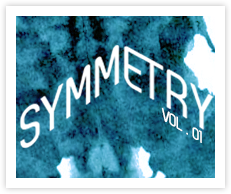

Pinterest: Motivator or Dream Crusher?
Sarah Kester // March 29, 2013

As I write this, I am switching back and forth between writing and browsing through Pinterest, the ever-trending social media website. In recent years, social media platforms have reached billions of users all over the world. Facebook allows you to connect with friends and family. Instragram captures and documents your life through photographs, and Pinterest is your ticket to collecting daily inspiration through imagery, bringing you one step closer to your “dream life.”
Yet, as I pin another photo of my dream mansion, I realize that by pinning this photograph, I don’t feel motivated or inspired. In fact, I feel a bit depressed. San Francisco-based psychologist Dr. Keely Kolmes believes that there’s a psychological reason behind this. “Despite the power of media to influence our self-perceptions, many people who are fighting themselves over self-esteem issues have histories in which others have been critical of them, and they have learned to internalize these messages.”
Pinterest, essentially, is the life you want, dangling right in front of your face. But the problem is – you’re not necessarily living it. You may never live it. Motivating…or depressing?
82 per cent of Pinterest’s traffic is women. Many of these women have a health or fitness board that displays anything from recipes and motivational quotes to bikini bodies. But as motivating as women think these visuals may be, they are likely lowering confidence, not boosting it.
Trending themes on Pinterest such as ‘Thinspo’ and ‘Fitspo,’ which are intended to motivate women to attain their dream body, have been shown to produce negative effects on self-esteem and body image. Cynthia Bulik, Ph.D., director of the University of North Carolina Eating Disorders Program, attests to this fact. “Fitspo refers to images and words that women post with the purpose of inspiring themselves and others to live a fit, active life,” says Bulik. “What’s more, slogans like ‘my weakness becomes my pain, and pain my pleasure’ are often just as shaming as those used in Thinspo, and I worry they could fuel the fire for people with eating disorders. A lot of Fitspo is a thinly veiled version of Thinspo, promoting the same obsessive tendencies and impossible appearance ideals, and that’s a trap.”
Tumblr, a short-form blogging platform that allows users to share essentially anything, banned the use of unhealthy content such as images that promote eating disorders in February 2011. More recently, Pinterest followed suit and took to the media, addressing and banning pinned content in the form of ‘thinspiration’ as it can be damaging to users.
Despite the negative trends that Pinterest has indirectly caused, visual communication isn’t going anywhere. In fact, it’s everywhere, especially in the field of marketing and public relations. As communicators, we have to adapt to changing environments. Sites like Twitter, Pinterest and Instragram will continue to be a dominating force when it comes to providing entertainment through visuals, as well as being a prominent branding strategy.
Detavio Samuals, the Executive Vice President and Director of Client Services at GlobalHue, explains that “Pictures have also become a short form way of communicating lots of information quickly and succinctly. The need for publishers to get to the point quicker than ever came about as humans became more pressed for time and content became more infinite. For publishers, it was evolve or risk losing their audience, and the only thing shorter than a tweet or post is a picture.”
When used correctly, Pinterest can be a useful tool for mapping out your dreams and goals. But it can come at a price. Don’t set yourself up to crash by relying too heavily on unattainable or unhealthy ideals. The secret to using Pinterest effectively is to set your sights on what you plan to accomplish and pin photographs that will motivate you to work toward realistic, healthy ideals.
Happy, safe pinning!
References:
Krupnick, E. (2012, March 26). Pinterest thinspiration’ content banned according to new acceptable use policy. . Retrieved from http://www.huffingtonpost.com/2012/03/26/pinterest-thinspiration-content-banned_n_1380484.html
Palis, C. (2012, 03 26). Pinterest terms of services get updated. The Huffington Post. Retrieved from http://www.huffingtonpost.com/2012/03/26/pinterest-terms-of-service-update_n_1379486.html?1332780457
Barnes, Z. (2012). Health controversy: Is “fitspo” bad for you?. Glamour Magazine, Retrieved from http://www.glamour.com/health-fitness/2012/07/health-controversy-is-fitspo-bad-for-you-glamour-august-2012
Henderson, M. (2011, 11 07). Is social media destroying your self-esteem?. Forbes , Retrieved from http://www.forbes.com/sites/jmaureenhenderson/2012/07/11/is-social-media-destroying-your-self-esteem/
-
http://www.biggerfatterpolitics.blogspot.com BiggerFatterPolitics
